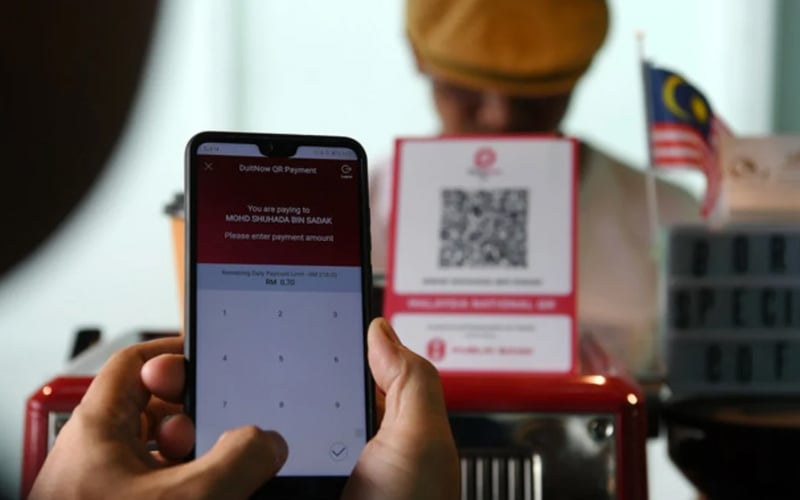
PETALING JAYA: The government should absorb the merchant discount rate (MDR) imposed on vendors accepting payments via the DuitNow QR code platform or share the costs with banks, says a business group.
The Small and Medium Enterprises Association (Samenta) said this is possible since the government, through Bank Negara Malaysia (BNM), is the biggest shareholder of Payments Network Malaysia Sdn Bhd (PayNet).
PayNet operates DuitNow and acts as the national payments network, with 11 Malaysian financial institutions, such as Maybank, CIMB Bank and AmBank, as joint shareholders.
Samenta president William Ng acknowledged that having a single QR payment platform is important to ensure convenience for all parties, from consumers to vendors, thereby encouraging cashless transactions.
“But, as the main shareholder, the government should also absorb or share the costs with the financial institutions to speed up our transition into a cashless society.
“Our aim is to turn Malaysia cashless. This is why PayNet’s decision to charge this fee is such a regressive move,” he told FMT.
Alternatively, Ng suggested a lower MDR rate than what would be implemented from Nov 1, warning that merchants would otherwise go back to only accepting cash.
“We must realise that PayNet is essentially a monopoly and merchants have no choice but to use DuitNow after investing considerable time and resources to encourage customers to pay via a single QR,” he said.
According to a screenshot posted on X (formerly Twitter), the MDR will purportedly be 0.25% of the transaction value if the payment is made from a current or savings account, and 0.5% by credit card, at a minimum of RM0.01 per transaction.
Yesterday, PayNet confirmed that vendors will be charged the MDR for payments received through DuitNow from Nov 1, saying the fee was previously waived to promote the use of QR payments when it was first introduced in 2019.
However, it said debit and credit card payments are already subjected to MDR currently, and it does not expect prices of goods and services to be affected by the lifting of the waiver.
It also said the MDR, which will be shared between PayNet and the relevant bank, is to “cover upkeep of our network as well as costs incurred by banks and third-party acquirers for onboarding merchants” into using DuitNow.
At least three banks have opted to extend the waiver, with Public Bank and Maybank opting to postpone the lifting of the waiver “until further notice”, and CIMB Bank maintaining the waiver until Dec 31.
Economist Geoffrey Williams of Malaysia University of Science and Technology disagreed with the notion that PayNet had a monopoly on QR payments, since the two banks had already chosen to delay lifting the MDR waiver.
He said this reflected the need to remove barriers to enter this particular market, so consumers would ultimately choose the best system.
Williams also made a case for the MDR fees, saying e-commerce providers had been providing cashless systems with zero fees for years but would eventually need to recover their costs.
“Even small fees can generate billions in revenue when there are billions of transactions. The fees may be small and negligible in many cases, but they do add to costs and prices overall,” he said. - FMT
No comments:
Post a Comment
Note: Only a member of this blog may post a comment.